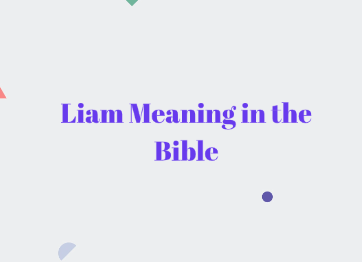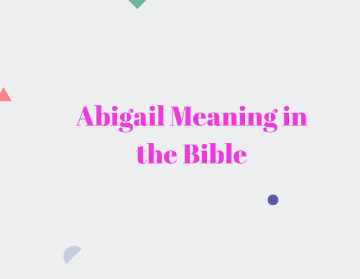
Choosing a baby name is an exciting yet challenging task for many parents. Names carry meanings, traditions, and sometimes, a hint of family heritage. If you're searching for a unique and meaningful name starting with the letter "W," you've come to the right place. Here are 180 baby boy names starting with W, along with their origins and meanings.
- Wade - Of Old English origin, meaning "to go" or "ford," often associated with crossing water.
- Wadi - Of Arabic origin, meaning "valley," typically used in desert regions.
- Wain - Of Old English origin, meaning "wagon," traditionally referring to a cart or vehicle.
- Waldemar - Of Germanic origin, meaning "ruler of the world," combining elements of power and leadership.
- Walker - Of Old English origin, meaning "cloth walker" or "fuller," a person who cleans cloth in the textile industry.
- Wallace - Of Scottish origin, meaning "foreigner" or "Welshman," historically linked to the Scottish hero William Wallace.
- Walden - Of Old English origin, meaning "valley of the forest," evoking a serene, natural setting.
- Waldo - Of Old German origin, meaning "powerful," often used in the context of strength and influence.
- Wally - Of Old German origin, a diminutive form of "Walter," meaning "ruler of the army."
- Walter - Of Germanic origin, meaning "ruler of the army," known for its strong and commanding presence.
- Walton - Of Old English origin, meaning "from the settlement by the wall," suggesting a historical or protective location.
- Warren - Of Old French origin, meaning "park keeper" or "gamekeeper," associated with nature and preservation.
- Warrick - Of Old English origin, meaning "fortified settlement," combining elements of protection and habitation.
- Washburn - Of Old English origin, meaning "from the wash brook," with "wash" referring to a small stream.
- Washington - Of English origin, meaning "from the town of Wassa's people," a prominent name associated with historical figures.
- Wayne - Of Old English origin, meaning "wagon maker" or "cartwright," traditionally referring to someone who builds or repairs wagons.
- Wendell - Of Old High German origin, meaning "wandering," often used to evoke a sense of adventure or movement.
- West - Of Old English origin, meaning "from the west," referring to direction or a location in the western part of an area.
- Weston - Of Old English origin, meaning "from the western town," combining the direction with a sense of community.
- Wexford - Of Old English origin, meaning "from the settlement of the mudflats," associated with a historical place in Ireland.
- Wheeler - Of Old English origin, meaning "wheel maker" or "cartwright," referring to someone who makes or repairs wheels.
- Whit - Of Old English origin, meaning "white" or "bright," often used to denote purity or clarity.
- Whitaker - Of Old English origin, meaning "white field" or "clearing," combining a color with a natural setting.
- White - Of Old English origin, meaning "white" or "bright," often symbolizing purity or simplicity.
- Whitman - Of Old English origin, meaning "white man," combining "white" with "man" to signify a pale or fair-skinned person.
- Wilbur - Of Old German origin, meaning "resolute" or "brilliant," combining elements of determination and brightness.
- Wilfred - Of Old English origin, meaning "desires peace," combining "will" with "peace" to suggest a peaceful nature.
- Will - Of Old English origin, a short form of "William," meaning "resolute protector."
- William - Of Old German origin, meaning "resolute protector," a classic and regal name with enduring popularity.
- Willie - Of Old German origin, a diminutive form of "William," meaning "resolute protector."
- Willow - Of English origin, meaning "willow tree," evoking images of grace and flexibility.
- Wilson - Of English origin, meaning "son of Will," a patronymic name indicating descent.
- Wilton - Of Old English origin, meaning "from the settlement by the hill," combining elements of location and geography.
- Win - Of Old English origin, meaning "friend" or "blessed," often used as a short form of names like "Winfield."
- Winston - Of Old English origin, meaning "joyful stone," combining "win" with "stone" for a sense of happiness and stability.
- Winthrop - Of Old English origin, meaning "friend of the horse," combining elements of friendship with a reference to horses.
- Winton - Of Old English origin, meaning "from the town of wine," suggesting a location with historical or cultural significance.
- Woodrow - Of Old English origin, meaning "row of trees," evoking a sense of nature and tranquility.
- Woody - Of Old English origin, a diminutive form of "Woodrow," meaning "wooded" or "from the forest."
- Wylie - Of Scottish origin, meaning "crafty" or "sly," suggesting a clever or shrewd character.
- Wyman - Of Old English origin, meaning "warrior" or "brave man," combining elements of strength and courage.
- Wynn - Of Welsh origin, meaning "fair" or "blessed," often used to denote a positive or fortunate nature.
- Waverly - Of Old English origin, meaning "meadow of quivering aspens," evoking a peaceful, natural setting.
- Wendel - Of Old High German origin, meaning "wanderer," suggesting a sense of adventure and exploration.
- Wesley - Of Old English origin, meaning "western meadow," combining elements of direction with a natural setting.
- Wren - Of English origin, meaning "small bird," evoking a sense of delicate beauty and nature.
- Wray - Of Old English origin, meaning "a small hill" or "enclosure," often used to denote a geographic feature.
- Wilder - Of English origin, meaning "untamed" or "wild," perfect for a boy with a free spirit and adventurous nature.
- Wilmer - Of Germanic origin, meaning "resolute" or "famous," combining elements of determination and renown.
- Waylon - Of English origin, meaning "land by the road," evoking images of a pastoral setting.
- Wilber - Of Old German origin, meaning "resolute" or "bright," suggesting a strong and luminous character.
- Walt - Of Old German origin, a diminutive form of "Walter," meaning "ruler of the army."
- Wells - Of Old English origin, meaning "spring" or "well," associated with natural water sources.
- Warner - Of Old German origin, meaning "defender" or "warrior," suggesting strength and protection.
- Westley - Of Old English origin, meaning "from the west meadow," combining direction with a natural element.
- Wilfredo - Of Spanish origin, a variant of "Wilfred," meaning "desires peace."
- Windom - Of Old English origin, meaning "from the windy hill," suggesting a breezy, elevated location.
- Whitfield - Of Old English origin, meaning "white field," combining a color with a natural setting.
- Wrenley - Of English origin, meaning "meadow of the small birds," combining nature with a charming twist.
- Westin - Of Old English origin, meaning "from the western settlement," reflecting a sense of place and direction.
- Welles - Of Old English origin, meaning "spring" or "well," associated with natural water sources.
- Winfield - Of Old English origin, meaning "win" or "friend" combined with "field," suggesting a field of victory or success.
- Willard - Of Old English origin, meaning "resolute" or "brave," indicating determination and courage.
- Winslow - Of Old English origin, meaning "friend’s hill," combining a sense of friendship with a geographic feature.
- Willis - Of Old English origin, meaning "resolute protector," a variant of "William" denoting strength and protection.
- Wolf - Of Germanic origin, meaning "wolf," associated with strength and wildness, often used symbolically.
- Wolfgang - Of German origin, meaning "wolf path," combining elements of a wolf with a journey or path.
- Wyatt - Of Old English origin, meaning "brave in war," evoking strength and heroism.
- Wynton - Of Old English origin, meaning "from the town of wine," a variant of "Winton" with a similar meaning.
- Wainwright - Of Old English origin, meaning "wagon maker," traditionally referring to a craftsman who built or repaired wagons.
- Waleed - Of Arabic origin, meaning "newborn child" or "young," symbolizing youth and new beginnings.
- Watson - Of Old English origin, meaning "son of Wat," a patronymic name derived from "Walter," meaning "ruler of the army."
- Waverley - Of Old English origin, meaning "meadow of quivering aspens," reflecting a tranquil, nature-inspired setting.
- Weldon - Of Old English origin, meaning "hill by the well," combining a geographic feature with a water source.
- Wesleyan - Of Old English origin, meaning "from the west meadow," a variation of "Wesley" with an academic or religious connotation.
- Westona - Of Old English origin, meaning "from the western town," combining direction with a sense of place.
- Whitby - Of Old English origin, meaning "white settlement," combining "white" with a geographic location.
- Whitmore - Of Old English origin, meaning "white moor" or "white meadow," combining a color with a natural feature.
- Wilberforce - Of Old English origin, meaning "bright force," combining elements of brightness and strength.
- Wilbraham - Of Old English origin, meaning "from the village of Wilbraham," a geographic name reflecting a place of origin.
- Wilfrid - Of Old English origin, meaning "desires peace," combining "will" with "peace."
- Wilkie - Of Scottish origin, meaning "resolute protector," a diminutive of "William," denoting strength.
- Willem - Of Dutch origin, meaning "resolute protector," a variant of "William" with a similar meaning.
- Willoughby - Of Old English origin, meaning "from the hill by the willows," combining a geographic feature with natural elements.
- Winstone - Of Old English origin, meaning "stone of victory," combining success with a solid, enduring feature.
- Wladyslaw - Of Slavic origin, meaning "to rule with glory," combining elements of leadership and honor.
- Wolfgango - Of German origin, meaning "wolf path," an Italian variant of "Wolfgang."
- Woodrowe - Of Old English origin, meaning "row of trees," similar to "Woodrow," evoking a natural setting.
- Woolf - Of Old English origin, a variant of "Wolf," meaning "wolf," symbolizing strength and wildness.
- Worley - Of Old English origin, meaning "enclosure by a mound," referring to a geographic feature.
- Worthington - Of Old English origin, meaning "from the settlement of Worth," combining location with worthiness.
- Wright - Of Old English origin, meaning "worker" or "craftsman," traditionally referring to someone skilled in a trade.
- Wyndham - Of Old English origin, meaning "from the windy village," combining direction with a natural feature.
- Wystan - Of Old English origin, meaning "battle stone," combining elements of conflict and strength.
- Wulf - Of Germanic origin, meaning "wolf," symbolizing fierceness and bravery.
- Wyndell - Of Old English origin, meaning "from the winding valley," reflecting a geographic feature.
- Williston - Of Old English origin, meaning "from the town of Will," combining location with a sense of purpose.
- Wellington - Of Old English origin, meaning "from the wealthy estate," combining affluence with a geographic location.
- Wilford - Of Old English origin, meaning "wooded ford," combining natural features with a sense of place.
- Wilburn - Of Old English origin, meaning "from the wild brook," combining natural elements with a geographic feature.
- Wolfram - Of German origin, meaning "wolf raven," combining elements of strength and protection.
- Warden - Of Old English origin, meaning "guardian" or "keeper," denoting someone who oversees or protects.
- Wess - Of Old English origin, a diminutive form of "Wesley," meaning "western meadow."
- Whitley - Of Old English origin, meaning "white meadow" or "white field," combining a color with a natural setting.
- Webster - Of Old English origin, meaning "weaver," traditionally referring to someone who weaves fabric.
- Wayland - Of Old English origin, meaning "land by the road," evoking images of a pastoral setting.
- Wadsworth - Of Old English origin, meaning "watchman's estate," combining elements of vigilance and location.
- Winfred - Of Old English origin, meaning "peaceful friend," combining qualities of peace and companionship.
- Wiley - Of English origin, meaning "resolute protection," combining determination with a sense of safeguarding.
- Whitney - Of Old English origin, meaning "white island," combining a color with a geographic feature.
- Ward - Of Old English origin, meaning "guardian" or "watchman," denoting protection and vigilance.
- Whittaker - Of Old English origin, meaning "white field" or "clearing," combining a color with a natural feature.
- Winter - Of English origin, meaning "season of cold," often used symbolically to evoke a time of year.
- Woodson - Of Old English origin, meaning "son of the wood," combining a natural element with a patronymic suffix.
- Wayde - Of Old English origin, meaning "to go" or "ford," similar to "Wade," referring to crossing water.
- Wilhelm - Of German origin, meaning "resolute protector," a variant of "William" with a similar meaning.
- Westbrooke - Of Old English origin, meaning "from the west brook," combining direction with a water feature.
- Wrighton - Of Old English origin, meaning "from the town of the worker," referring to someone skilled in a trade.
- Wyllie - Of Scottish origin, meaning "crafty" or "sly," a variant of "Wylie" with similar meanings.
- Waymond - Of Old English origin, meaning "joyful protection," combining elements of happiness with safeguarding.
- Willy - Of Germanic origin, a diminutive form of "William," meaning "resolute protector."
- Webb - Of Old English origin, meaning "weaver," referring to someone who weaves fabric.
- Wentworth - Of Old English origin, meaning "from the friend's settlement," combining elements of friendship and place.
- Werner - Of German origin, meaning "defending warrior," combining elements of protection and strength.
- Wesson - Of Old English origin, meaning "son of the west," combining a direction with a patronymic suffix.
- Worth - Of Old English origin, meaning "enclosure" or "settlement," referring to a place or a geographic feature.
- Wythe - Of Old English origin, meaning "from the ditch," often referring to a location near a ditch or trench.
- Wynne - Of Welsh origin, meaning "fair" or "blessed," often used to denote a positive or fortunate nature.
- Wynnfield - Of Old English origin, meaning "field of joy," combining elements of happiness and a natural setting.
- Wynnston - Of Old English origin, meaning "from the town of joy," combining elements of joy and location.
- Wyckoff - Of Dutch origin, meaning "from the corner farm," combining a geographic feature with a farm setting.
- Wyeth - Of Old English origin, meaning "wilderness" or "wild place," reflecting a natural and untamed environment.
- Wymond - Of Old English origin, meaning "joyful protection," combining elements of happiness and safeguarding.
- Waverick - Of English origin, a variant of "Waverley," meaning "meadow of quivering aspens," with a unique twist.
- Wylde - Of English origin, meaning "wild" or "untamed," symbolizing freedom and natural strength.
- Wylder - Of English origin, meaning "wild" or "untamed," similar to "Wylde," suggesting a rugged or adventurous character.
- Wynford - Of Welsh origin, meaning "blessed ford," combining elements of fortune with a geographic feature.
- Wyn - Of Welsh origin, meaning "fair" or "blessed," often used as a short form of names meaning joy or good fortune.
- Wynston - Of Old English origin, meaning "from the town of joy," combining elements of joy and location.
- Wrenn - Of English origin, meaning "small bird," reflecting a delicate and natural quality.
- Wrex - Of Welsh origin, a variant of "Rex," meaning "king" or "ruler," associated with leadership and authority.
- Wryly - Of English origin, meaning "with a wry expression," denoting a sense of humor or irony.
- Wynnward - Of Old English origin, meaning "protected joy," combining elements of happiness with protection.
- Wynneville - Of English origin, meaning "town of joy," combining elements of happiness with a sense of place.
- Wynter - Of English origin, meaning "winter," evoking images of the cold season with a unique spelling.
- Wylles - Of Old English origin, meaning "crafty" or "sly," a variant of "Wyllie" with similar meanings.
- Warwick - Of Old English origin, meaning "from the district of Warwick," combining location with historical significance.
- Winstanley - Of Old English origin, meaning "from the stone clearing," combining elements of victory with a natural feature.
- Wrightson - Of Old English origin, meaning "son of the worker," referring to someone skilled in a trade.
- Warrenette - Of Old English origin, meaning "small park" or "game reserve," a diminutive form of "Warren."
- Watts - Of Old English origin, meaning "son of Watt," a patronymic name derived from "Walter," meaning "ruler of the army."
- Wayte - Of Old English origin, meaning "to watch" or "to guard," suggesting vigilance and protection.
- Weir - Of Old English origin, meaning "dam" or "fish trap," referring to a structure built across a river or stream.
- Westmore - Of Old English origin, meaning "from the western moor," combining direction with a natural feature.
- Whittier - Of Old English origin, meaning "one who makes or sells white cloth," referring to a trade related to textiles.
- Wibert - Of Old German origin, meaning "bright" or "shining," combining elements of light with strength.
- Wick - Of Old English origin, meaning "village" or "settlement," often used to denote a geographic location.
- Wickham - Of Old English origin, meaning "village with a small stream," combining a settlement with a natural feature.
- Wickett - Of Old English origin, meaning "small village," a diminutive form of "Wickham" or "Wick."
- Wildon - Of Old English origin, meaning "from the wild hill," combining elements of nature with a geographic feature.
- Willett - Of Old English origin, meaning "son of William," a diminutive form denoting a variant of "Will."
- Winchell - Of Old English origin, meaning "from the settlement of the wine," combining location with a historical reference.
- Wolcott - Of Old English origin, meaning "from the cottage by the wolf," combining a geographic feature with an animal reference.
- Wolters - Of Dutch origin, meaning "son of Walter," a patronymic name derived from "Walter," meaning "ruler of the army."
- Woodbine - Of Old English origin, meaning "woodland vine," evoking images of natural growth and greenery.
- Wycoff - Of Dutch origin, meaning "from the corner farm," similar to "Wyckoff," reflecting a farm setting.
- Wycliffe - Of Old English origin, meaning "from the cliff by the stream," combining a geographic feature with a natural setting.
- Wyland - Of Old English origin, meaning "land by the river," combining geographic elements with a water source.
- Wyott - Of Old English origin, meaning "brave in war," a variant of "Wyatt" with a similar meaning.
- Wynant - Of Dutch origin, meaning "blessed," combining elements of fortune with a personal name.
- Wynkoop - Of Dutch origin, meaning "from the winch farm," combining location with an agricultural reference.
- Wynsley - Of Old English origin, meaning "meadow of joy," combining elements of happiness with a natural feature.
- Wynyard - Of Old English origin, meaning "enclosure of joy," combining elements of happiness with a protective feature.
- Wynns - Of Old English origin, meaning "blessed" or "joyful," a variant of "Wynn" with a similar meaning.
- Wyllys - Of English origin, meaning "crafty" or "sly," a variant of "Wyllie" with similar meanings.
- Wyngate - Of Old English origin, meaning "gate of the winding path," combining geographic and natural elements.
- Wyre - Of Old English origin, meaning "from the river," referring to a water source or geographic feature.
- Wyrmont - Of Old English origin, meaning "from the protected hill," combining elements of protection and geography.
- Wytham - Of Old English origin, meaning "from the settlement by the willow trees," combining location with natural elements.
- Wyze - Of Old English origin, meaning "wise" or "shrewd," reflecting intelligence and discernment.
These 180 baby boy names starting with W offer a variety of choices, each with its unique charm and significance. Whether you prefer classic, modern, or nature-inspired names, there's something on this list for every parent looking to give their child a meaningful start in life.






